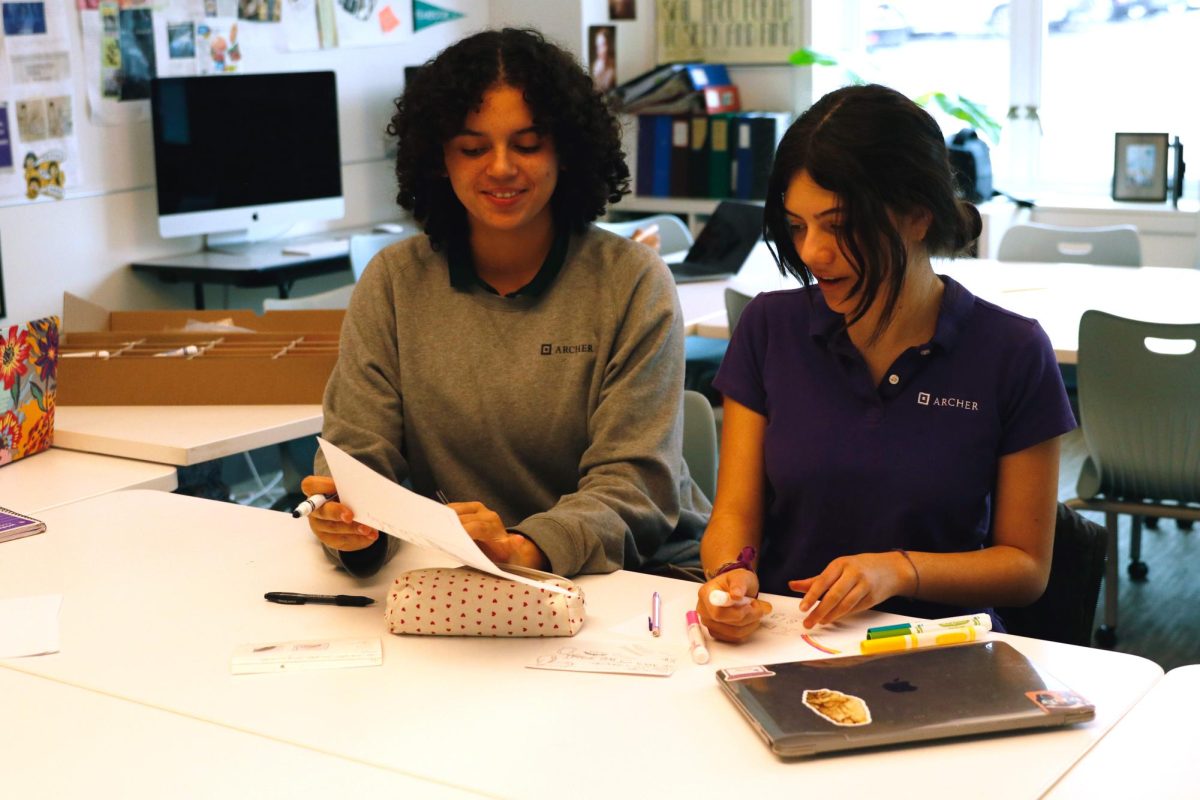Some students play the violin. Some play soccer. Some are on Student Council. Regardless of how students spend their school year, they all have the same thing waiting for them at the end of it: summer. How will they spend it?
This is the question many Archer students are faced with in January when — although summer is months away — program applications begin to open. Director of College Guidance Ivan Hauck said, in recent years, the conversation around how to spend the summer has shifted away from relaxing vacations and has centered, for high school students, around more rigorous programs.
Freshman Pasha Selig said she has been interested in business since she was young and recently decided to use the summer as a time to learn more about the world of business and explore other subjects that she would not be able to in a traditional school setting. In a past summer, she took a virtual course on cosmetic chemistry, which she said helped her realize she didn’t have to limit herself to one field.
“It’s really to educate yourself further,” Selig said. “I think education is really important, even beyond school, and so I think a lot of kids do that because they want to learn more than what’s just accessible at their schools.”
Junior Rachel Michiel agreed that summer is an important time to grow. Michiel has previously spent her summers interning at a theater camp, developing her writing skills at the School of the New York Times and engaging in service around the country through a program called Visions. Michiel said she enjoyed how these programs allowed her to further develop her learning.
“I really felt like I was taking the pieces of my learning at school and really placing them in and seeing how that would fit in into a college or after Archer atmosphere,” Michiel said.
Summer programs students choose to participate in often fall into the categories of academic, service or enrichment. Academic programs often double as pre-college programs, which help high school students to prepare for a college environment. When discussing the benefits of each category, Service Learning Coordinator Meg Shirk said she encourages students to spend their summers exploring their passions.
“I think students have to think about their identity and think about: what are they interested in and what do they want to challenge? What do they want to grow?” Shirk said. “Just putting yourself out there and joining a program where you don’t know anybody is just incredible. And I think that, as a high schooler, that will prepare you for all the steps that come next.”
In addition to using summer opportunities to grow and have fun, many high schoolers also see them as a way to appeal to colleges. In order to help students navigate this landscape, the college guidance department holds Lunch & Learn events for students to learn about different aspects of the college search and application process. Selig said, at these meetings, she has become more aware of summer opportunities and how they influence the college admissions process.
“That was really interesting to learn about, and how I can better myself over the summer,” Selig said.
As the discussion around summer programs has grown in recent years, so have the program costs, Hauck said. Some students face financial barriers in the pre-college scene, and Hauck said that colleges both understand these barriers exist and have no expectation that students participate in pre-college programs. He emphasized that the benefits of any experience, regardless of whether if it is pre-college or not, come from the effort and enthusiasm of each individual student.
Hauck advised all students to spend their summers on things they enjoy, not only trying to appeal to colleges. He mentioned that in some cases, taking the summer to rest can be productive.
“There’s actually tremendous value in taking time away from prescribed activities and just saying, ‘You know what? I want to take time to be in nature. I want to sit down and read a book. I want to play with my siblings or go out with my friends,’” Hauck said. “There’s absolutely value in that, and I really hope that students especially understand that that they don’t have to pack every single day of their summer with stuff.”










